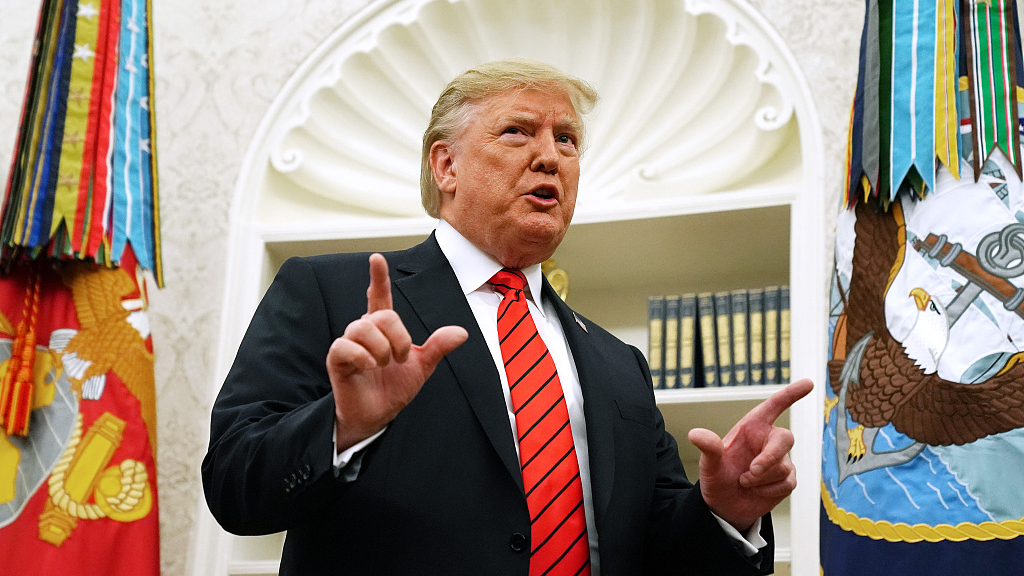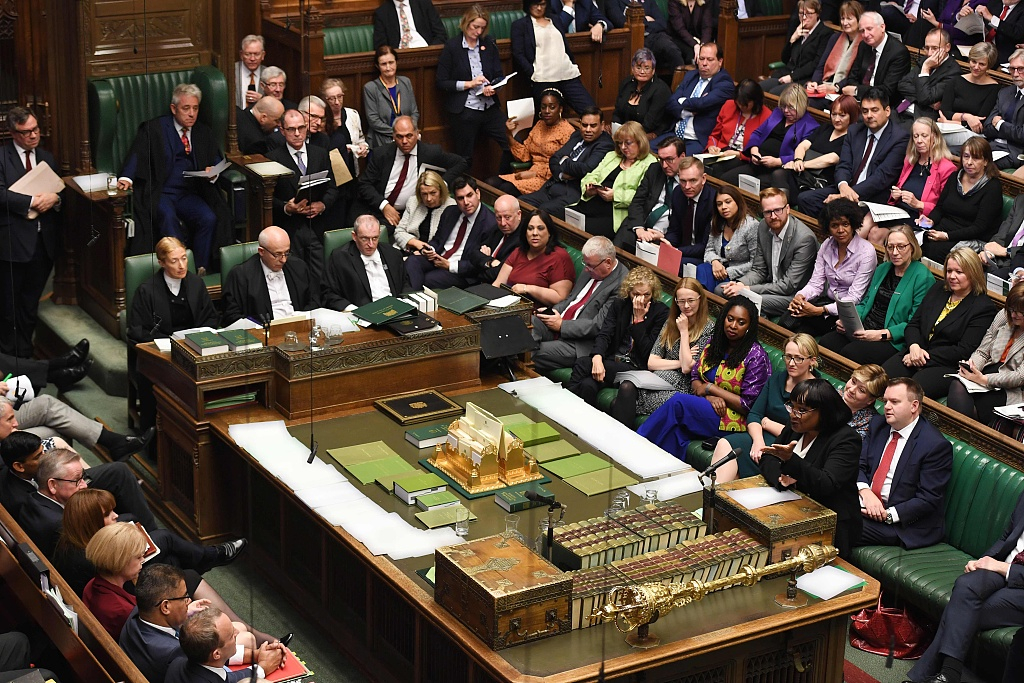
Editor's Note: Tom Fowdy is a British political and international relations analyst and a graduate of Durham and Oxford universities. He writes on topics pertaining to China, the DPRK, Britain, and the United States. The article reflects the author's opinion, and not necessarily the views of CGTN.
On Wednesday, following a ruling by the World Trade Organization (WTO), the United States announced it would be slapping a list of tariffs against the European Union over its longstanding dispute over Airbus, totalling up to 7.5 billion U.S. dollars at a levy of 25 percent.
The duties focus on a variety of goods, signalling out a range of Mediterranean countries, Germany, and the United Kingdom. The outcome arrives following tense negotiations between the two partners over the past year, with the President having publicly threatened to tariff Europe on multiple occasions. The U.S. administration has also threatened escalation if it cannot get what it wants from the bloc.
The situation is difficult to understand. Whilst the Boeing-Airbus dispute long predates Trump, it nevertheless has been opportunistically used by the President as a justification for part of his trade assault on Europe. The President does not like the EU's protected market system.
His foreign policy objective has long been to pry it open to secure advantages for American companies. However, although the dispute is smaller in scale than that he is pursuing against China, the economic impact of a two-frontier trade war is bound to have serious repercussions for the global economy.
Not only this, but it is completely bizarre from the American strategic viewpoint- with the President choosing to alienate, than ally with Europe.
To understand this, let's first look at the Boeing-Airbus dispute: For 15 years the United States and the European Union have held a state of disagreement over their core aviation industries. America accuses the EU of granting unfair subsidies to the aircraft producer Airbus whilst taking advantage of access to U.S. markets, whilst the American producer Boeing is not given those same privileges thus putting it at an apparent disadvantage.
The European Union of course, has long pursued protectionist oriented policies in the bid to preserve the strength of its "single market."

A worker walks in front of a new double-decker Lufthansa Airbus A380 after it arrived at JFK International Airport following its first route-proving flight to the United States with over 500 passengers in New York City, March 19, 2007. /VCG Photo
A worker walks in front of a new double-decker Lufthansa Airbus A380 after it arrived at JFK International Airport following its first route-proving flight to the United States with over 500 passengers in New York City, March 19, 2007. /VCG Photo
Then along came Trump. Building on this existing dispute, the president has sought to pursue a wider trade offensive against the continent with the goal of prying open its market to obtain better advantages for American companies.
For a year, he pursued trade negotiations with the bloc and held a temporary "ceasefire" whilst he pursued China instead. Nevertheless, he has repeatedly threatened tariffs on the European Union via twitter, which are the ones coming into play today. Thus, the administration has effectively taken the reins of the Boeing-Airbus dispute and weaponized it through WTO.
The choice of a multilateral pursuit of tariffs is noticeably different from his usual abrasive unilateral style, perhaps because the WTO adds legitimacy and justification to his decision making. After all, he cannot claim an "EU threat" in the way he has with China. Still, to go ahead with these tariffs on the back of the ruling is a personal, optional and political choice for him, one which he has attached a lot of gravity to in his personal rhetoric as noted above.
However, the ruling also gives way for the European Union to strike back on equal terms, meaning it will be a two way trade war. The White House has stated it may yet escalate further.
The political logic of it all is bizarre. A two front trade war may prove absolutely dismal for the global economy. Europe's growth is already fragile as it is, with Germany tipping into recession. The United Kingdom is also teetering on the brink due to Brexit, with numerous exports also targeted. The economy of southern Europe is also weak.
On the other hand, for American consumers and thus soon some exporters, this is a disaster. The EU and China are the world's two largest economic blocs, which will consist of the majority of America's trade activity. The cost of wine, cheese, whiskey, and other products will undoubtedly increase.

Britain on Wednesday published its own Brexit plan for keeping the Irish border open and removing the need for an EU-backed deal that was rejected by the UK parliament three times in London, October 2, 2019. /VCG Photo
Britain on Wednesday published its own Brexit plan for keeping the Irish border open and removing the need for an EU-backed deal that was rejected by the UK parliament three times in London, October 2, 2019. /VCG Photo
Thus, opening up a two front trade war is a strategic and economic blunder. The U.S. president has geared much of his foreign policy to going all out against China, yet in the process has sought to alienate and attack the countries who many analysts aspired for him to ally up with.
In every dimension he is isolating Washington, burning bridges and for the so called "Best Economy Ever" has placed American businesses and consumers right into the boiling crucible of a two frontier trade war. How can he ever expect to come out of all this smelling of roses?
(If you want to contribute and have specific expertise, please contact us at opinions@cgtn.com.)